Announcing the “Pathways to Power” Symposium, London, 18 – 19 November: Taking #ShiftThePower to the next level
05 Jun 2019
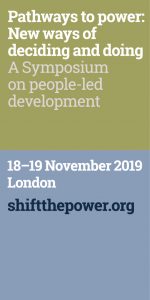 On November 18 – 19 2019, a Symposium on people-led development – “Pathways to Power: New Ways of Deciding and Doing” – will be held in London. A follow-up to the Global Summit on Community Philanthropy held in December 2016, the Symposium will be a smaller event, focused specifically on deepening and joining up theory and emergent practice – both bottom-up and top-down – that seeks to shift power closer to communities.
On November 18 – 19 2019, a Symposium on people-led development – “Pathways to Power: New Ways of Deciding and Doing” – will be held in London. A follow-up to the Global Summit on Community Philanthropy held in December 2016, the Symposium will be a smaller event, focused specifically on deepening and joining up theory and emergent practice – both bottom-up and top-down – that seeks to shift power closer to communities.
We want to develop the agenda for the event through consultations and discussions with those who are interested in being part of it. Look out for how to get involved: we’ll be sending follow-up information and an invitation for ideas shortly.
Over the last couple of months, conversations have already started about Pathways to Power, both as an event, and also as part of a larger, more concerted effort to organize and join up a global movement of people and organizations who know that new ways of working, that put people in the driving seat, aren’t just necessary but entirely possible too.
In March, the GFCF invited a group of partners from Sub-Saharan Africa and South Asia to travel to London for a few days to attend the annual BOND conference as well as a day-long brainstorming session aimed at taking #ShiftThePower to the next level and, more concretely, to start to plan for the Symposium. Colleagues from the Dalit Community Foundation, Foundation for Civil Society (Tanzania), Kenya Community Development Foundation (KDCF), Tewa – the Nepal Women’s Fund, West Africa Civil Society Institute (WACSI) and Zambian Governance Foundation (ZGF) were joined by U.K. colleagues from Compass / the Common Platform, Rethinking Poverty, Tyne and Wear Citizens and #TheHullWeWant.
The conversations were rich and extensive – and took place in conference sessions, over curry and pizza, on walks to and from hotel to venues, and at a day-long meeting at the Town and Country Planning Association. But this was just the start of a conversation, one that we want to continue, expand and deepen over the coming weeks and months, as we organize the Symposium, but also as we look to find ways to bring together broader efforts to shift power.
In the spirit of encouraging that conversation, we offer here a few insights and suggestions from our time together in London, including a draft “manifesto for change” (see below). What do you think? What would you like to add? Would you like to contribute an article or a blog? Or to submit an idea or discussion topic for the Symposium? The conversation is open…just send us a quick email (info@globalfundcf.org) with your thoughts – we look forward to hearing from you!
A few highlights from our conversations:
1. We need to be clear what #ShiftThePower is – and what it is not
#ShiftThePower certainly has a nice ring to it: however, shifting power is about more than using a hash-tag. “When people say people say ‘shifting the power’ they could actually may be talking about different things, so it’s important that we define more clearly what we mean” noted Caesar Ngule from KCDF. Caesar explained what it meant to him:
- #ShiftThePower means ceding decision-making power closer to the ground, and focusing more on growing grassroots ability to design their own projects. It will not and should not matter where offices are (either in the Global North or South). It’s about doing things differently.
- #ShiftThePower is not just an opportunity for Southern NGOs to reposition themselves for more funding. It is about appreciating that different actors have different capacities and roles to play, and finding the best point of convergence that allows us all to leverage each other’s efforts.
- #ShiftThePower is not just a response to declining flows of international funding; it is really appreciating there is more to offer besides funding. Solidarity, diversity of ideas that make us human, the correlation of what happens in different parts of the world. It is leaving no one behind.
- #ShiftThePower is about realizing we can’t continue doing the same things and expecting different results. It’s about understanding that when power is really shifted to the community level, and people feel like they own – and even contribute to – their own development, the outcomes are better and more long-lasting.
- #ShiftThePower is not driven by pride that “we,” the Global South can “do it alone.” It’s rather driven by the exciting stories of change that illustrate what can happen when the inherent, global, human desire to take action on behalf of oneself and one’s neighbours is unlocked.
- #ShiftThePower means accountability driven by mutual understanding, honesty, long-term relationships, trust and solidarity (and not just by log frames).
- #ShiftThePower means unlocking local resources (community philanthropy) which, in turn, helps communities to activate and flex their social muscle as engaged and active citizens with a stake in how government allocates public resources.
2. Put community organizing and activism – and the vision of a “good society” – at the heart of our work
Bringing together people from very different contexts and parts of the world, whose paths don’t normally cross, for a one-day meeting can always be a bit risky. A recent pamphlet produced by Compass, however, 45 Degree Change: Where top-down meets bottom-up, offered a useful starting point for the kind of conversation we wanted to have. Although it originates from the U.K., the theory that underpins it is one that rings familiar to anyone grappling with the question of how grassroots action and organizing can drive meaningful social change (rather than celebrated as “small and beautiful,” and then being promptly dismissed as marginal in the search for big, “scalable solutions”). The argument is simple: around the world, citizens are organizing themselves in new and creative ways. What is missing and needed are new ways to“build bridges across the 45° fault line” which divides top-down from bottom-up, based on strong relationships and understanding between people and organisations on either side of the line.
For Charles Kojo Vandyck (WACSI), there was a clear “common thread of arguments from colleagues from the Global South, regarding the importance of redressing the power and resource imbalances between the donor community, INGOs and local communities.” What was more surprising and pleasing to hear too were the experiences of community organizers in the U.K., who were tackling similar kinds of issues confronting marginalized grassroots communities in creative ways. Would a more intentional focus on concepts like a “good society,” and strategies like activism and community organizing, help unshackle southern civil society organizations from the perhaps more instrumental conventions and categories of “service provision”, “capacity building” and “advocacy”?
For Gill Hughes from #TheHullWeWant, it was interesting to hear from colleagues working in other parts of the world, many of whose experiences sounded only too familiar, and it confirmed the enormous potential for organizing “horizontal power” – particularly among marginalized communities – on a more joined up basis.
“I really value the #ShiftThePower ethos,” said Gill, “and the collaborative emphasis in community philanthropy. It aligns with the asset-based approach we work to, and creates that flattening of the power structures. There are certainly echoes in terms of how dynamics in Global South and North play out. Of course, there are clearly different issues too (not least, the scale of challenges we are facing), but we have a lot in common too, which gives strength to campaigns like #ShiftThePower and #StrongNotWrong to facilitate the voices of the grassroots in south and north.”
3. #ShiftThePower is both political and personal
We need to challenge the structure and culture of the development “industry,” and we that includes the positions we occupy and the roles we play in it. This message was driven home by Barbara Nöst, Zambian Governance Foundation, in a plenary at the BOND conference. She used the opportunity to describe her own personal experience of more than 20 years working as a development professional: “I have been part of this system and have also helped to shape it and its programmes,” she said. However, the last ten years as director of a Zambian NGO had changed how she saw the world. “Sitting at the receiving end of development aid, I have come to see how power dynamics play out to the disadvantage of local NGOs and it has made me feel increasingly uneasy.”
4. What is the difference we want to make?
In the words of civil rights leader, Frederick Douglas: “Power concedes nothing without a demand. It never did, and it never will.” #ShiftThePower is the starting point for a new conversation but, we agreed, a clear action plan was important to keep moving things forward. We landed on this:
- Joining up what is emerging so we create real alternatives: that means intentionally weaving together narratives and practices in the spirit of “movement generosity.”
- Putting forward specific demands with a view to influencing and changing the current system.
- Holding people accountable.
As a starter, we drafted the following “Manifesto for Change.” What do you think? What are we missing?
#ShiftThePower: a Manifesto for Change
If we want to create a genuine alternative to existing ways of deciding and doing, we need to:
- Embrace a vision of a “good society” built around core values of equality, democracy and sustainability and a set of organizing principles based on global solidarity and distributed leadership.
- Cast off the restrictive framework of “international development,” which is defined by money and power and which creates artificial barriers between communities and movements in the global north and south.
- Move away from a system that is preoccupied with quick “solutions,” and is premised on and organized around the transfer of funds. Change how we approach, and seek to measure, the notion of success.
- Creatively find ways to unlock the inherent power of communities in determining their own development course – however they define it – and let the language of “beneficiaries” and “recipients be a thing of the past.
- Move away from “building capacity” as defined by external actors and requirements, towards community organizing and movement building, where “capacity” equates to relevance, rootedness and constituency.
- Ensure that external funding recognizes, respects and builds on local resources and assets, rather than over looks, undermines or displaces.
- Expand our horizons beyond money as the central driver of change, and place greater value on other kinds of infinite non-financial assets and resources (knowledge, trust, networks etc)
- Change the language we use so that it enables new ways of working and thinking, rather than constrains them. And challenge the dominance of English.
- Change ourselves. We need both humility and boldness, and to be ready to challenge our own power and to listen to and work with others.
In short, we want a future that is negotiated, participatory, and widely owned, and which is developed through values and processes based on movement generosity rather than the success or failure of one organization over others.


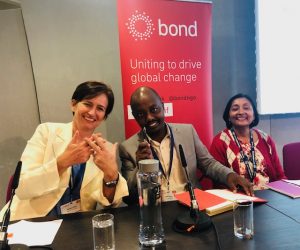
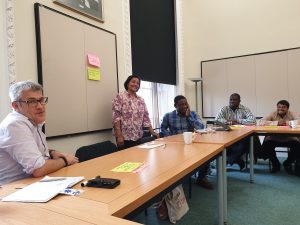
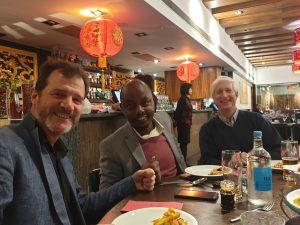
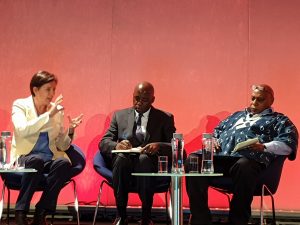
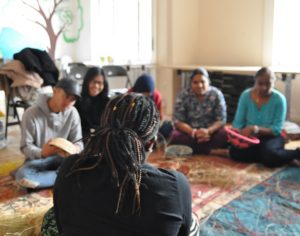
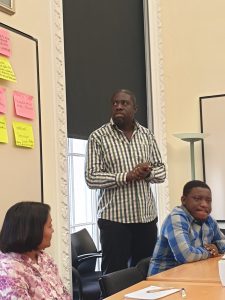
Shift the Power is also deep listening to the heart felt hopes, needs and desires of local communities and the people who live there and trusting that they have insight into solutions. Considering the current climate crisis we need to emphasize that although many of the least developed countries and communities will be the most adversely affected, it is these same communities are doing great things to mitigate the change. The global north must recognize and value that by protecting and replanting forests, preserving natural habitats, and living simply in less consumer driven societies, the global south is balancing, on… Read more »
Fully agree with #ShiftThePower as a strategic change agenda for Brazil
I’m very impressed by #ShiftThePower: a Manifesto for Change. The Albanian Society for All Ages (ASAG) focuses on older women and widows of all ages. Longevity shapes the future! For this social group ‘Communities’ empowerment is critical. It’s not a side issue. ASAG explores how ageism interacts with other forms of discrimination, placing certain groups at higher risk of exclusion and vulnerability as they age. #ShiftThePower means unlocking local resources (community philanthropy) which, in turn, helps communities activate and flex their social muscle as engaged and active citizens engage with how government allocates public resources. Put community organizing and activism… Read more »
There are deep hierarchies of class, caste, gender…. that exist in the global south both politically and socio-economically. I believe there are multiple levels of power shifts needed in this transformative process/movement. We in the south too have baggage to shed…and emerge with a “good society” collective outlook, moving far far away from our own brands of divisiveness. This moment possibly presents a window…for us all to rearrange our lives, our work, our purpose.
All very good points. I worked along these lines when i was the civil society director for the ga Khan Foundation – we referred to building “a civil society”, but it was similar to a good society. It is also referred to in my book “Adventures in the Aid Trade” particularly the last summing up chapter. I found the CDA book on listening to those who have received aid to be very valuable. Happy to get involved in the thinking, practicing, implementing of these ideas….